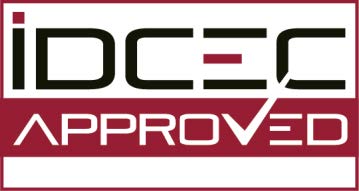
Planning Ahead to Age at Home
-
You must log in to register
- Guest - $59
- ASID Member - Free!
Understand how homeowners can spend less money in the long term while aging in their homes by planning home upgrades that meet the Standards of Universal Design and Accessibility ahead of time.
Continuing Education Approval
- 1 IDCEC CEU | HSW | CC-116350R1 (Your CEU will be reported to IDCEC on your behalf.)
Course to be retired April 1, 2026 and the content will no longer be available to you. You must complete all required course components by 11:59pm EDT on March 31, 2026 to receive CEU credit.
Supported by

Description
Research shows 73-88% of Baby Boomers in America want to age in their homes, yet few residences are prepared to accommodate long-term needs. This generation will live 10-15 years longer than previous generations, so Baby Boomers must stay healthy 10-15 years longer. To house healthier older adults, homes must accommodate physical needs for a lifetime. Preparing ahead is a key element in this equation. In today’s world, people are motivated by initiatives that save time, energy and money. People spend money in order to save money long term. This webinar focuses on how homeowners can spend less money in the long term while aging in their homes by planning home upgrades that meet the Standards of Universal Design and Accessibility ahead of time. A monetary value equation is presented, supporting that the most economical choice is to age in a home designed for multi-generational use. This research was made possible thanks to the ASID Foundation Irene Winifred Eno Grant.
What You Will Learn
- Recognize the predominant preference to age at home and the importance of planning ahead in order to prepare a lifelong multi-generational living environment
- Integrate the standards of Universal Design and Accessibility into the design elements of residential upgrades
- Discover the support systems needed by individuals to remain active in their communities while aging at home
- Review the key components of housing and healthcare presented as cost comparisons for aging at home versus aging in an assisted living facility
Access period: Course to be retired April 1, 2026 and the content will no longer be available to you. You must complete all required course components by 11:59pm EDT on March 31, 2026 to receive CEU credit.
Lisa Bonneville, FASID
Principal, Bonneville Design
Lisa Bonneville, FASID is a passionate interior designer with a vision to create an accessible world, one home at a time. For over 36 years, she has managed her award-winning firm, Bonneville Design, in Manchester-by-the-Sea, Massachusetts, serving a residential, corporate, healthcare and retail clientele. She continues to work with many of her original clients, creating new homes for them through upgrades and careful planning on new construction to achieve lifelong living environments. Her inspired approach to the process of spatial planning and aesthetic impact provide fresh creative solutions on every project. She forms supportive teams, encourages collaboration, and improves outcomes by ensuring timely and transparent communication. This distinctive approach, coupled with a high level of organization and project management expertise, makes her a highly valued resource to her clients, vendors, and colleagues in the trade.
Always a strong advocate for the physically and mentally challenged, Bonneville incorporates the standards of Universal Design into her project solutions and works with clients to heighten awareness of the importance of safety and mobility within the home while achieving optimum living environments for themselves, their family members, and friends. She is a 2014 recipient of the ASID Foundation’s Irene Winifred Eno Grant for the research project “Developing a Cost Comparison Tool for Planning Ahead to Age in a Home Designed to the Standards of Universal Design and Accessibility vs. Moving Into an Assisted Living Facility,” and in 2008 was inducted into the New England Design Hall of Fame. She’s the author of The Safe Home, Designing for Safety in the Home (2007).

This CEU is registered with the International Design Continuing Education Council (IDCEC) for continuing education credits. This credit will be accepted by the American Society of Interior Designers (ASID), International Interior Designers Association (IIDA) and Interior Designers of Canada (IDC).
The content included is not deemed or construed to be an approval or endorsement by IDCEC of any material or construction or any method or manner of handling, using distributing or dealing in any material or product.
Questions related to specific materials, methods and services should be directed to the instructor and provider of the CEU.
This program is registered for 1 CEU value | HSW. The IDCEC class-code is: CC-116350.
